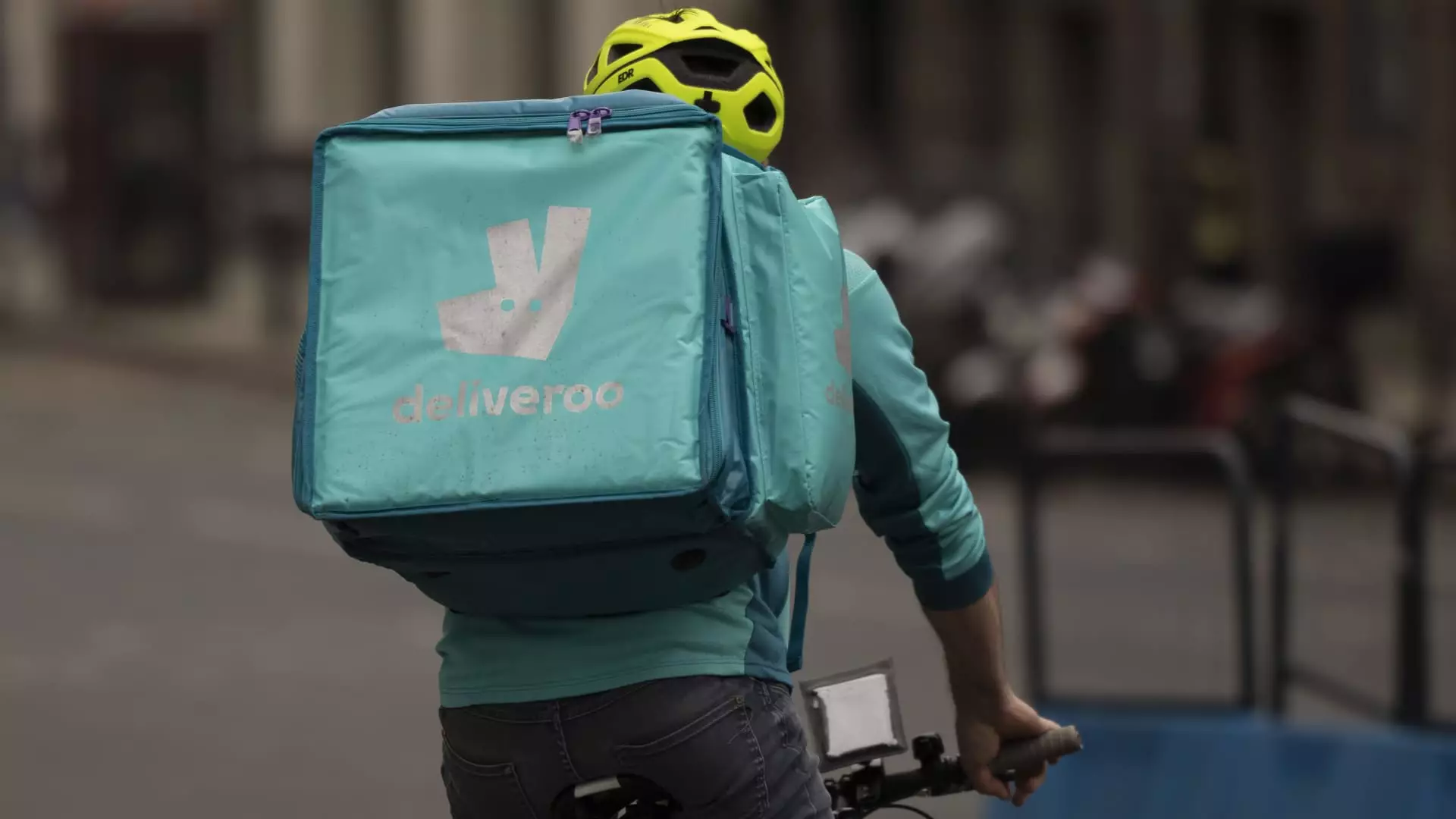In a pivotal moment for the global food delivery industry, British firm Deliveroo has officially accepted an acquisition offer from U.S.-based DoorDash, valuing the company at approximately £2.9 billion ($3.9 billion). This acquisition is not only a key development for the companies involved but also a significant indicator of the ongoing evolution in the food delivery sector. Deliveroo announced its board’s unanimous agreement to DoorDash’s proposal to acquire all existing and yet-to-be-issued shares at a price of 180 pence each. This pricing represents a notable 44% premium over Deliveroo’s closing stock price before the proposition was publicly acknowledged, evidencing positive investor sentiment.
Hitting a three-year peak, Deliveroo’s stock surged in response to this news, demonstrating the market’s cautious optimism. The deal emphasizes DoorDash’s strategic ambition to penetrate international markets more aggressively. The combined entity could potentially serve a staggering collective population exceeding 1 billion across more than 40 countries, creating avenues for increased local business support and technological innovation.
The Rise, Fall, and Potential Resurgence of Deliveroo
Deliveroo’s journey since going public has been overwhelmingly dramatic, characterized by initial jubilation followed by sharp declines. The company debuted on the London Stock Exchange amid the pandemic-induced boom in food delivery, yet it suffered an unsettling 30% drop in share value during its first trading day in March 2021. This poor performance was widely viewed as symptomatic of deeper issues—investors began questioning the sustainability of such explosive growth as society emerged from pandemic-related constraints.
From its peak, Deliveroo’s share price has plummeted over 50%, falling from the initial IPO price of £3.90. Various factors have contributed to this decline, including an increasingly competitive landscape marked by both new entrants and established firms fighting for market share. Coupled with legal disputes surrounding gig economy practices, Deliveroo faced a series of challenges that placed its business model under scrutiny.
Despite these setbacks, the acquisition by DoorDash could signify a fresh start for Deliveroo. The brand has the potential to revitalize its operations and capitalize on DoorDash’s established infrastructure and technological prowess. As the marketplace evolves, the synergies created by this partnership could enable Deliveroo to enhance its services and expand its reach.
DoorDash’s Strategic Offensive: Going Global
In acquiring Deliveroo, DoorDash is clearly aiming to bolster its foothold in international markets, an ambition evident in its previous acquisition of the Finnish delivery service, Wolt, for €7 billion in 2022. This strategic expansion reflects a growing trend among major players in the food delivery market as they vie for dominance and consumer loyalty on a global scale.
The implications of this acquisition stretch beyond mere market share; DoorDash’s entry into the British market through Deliveroo could also spotlight critical adjustments in consumer behavior and preferences regarding food delivery in a world increasingly attuned to localism and operational efficiency. It enables DoorDash not just to market itself as a food delivery service, but as a technology-driven facilitator for local businesses—a narrative that could resonate well with consumers post-pandemic.
Moreover, while DoorDash’s stock dipped approximately 1% in U.S. pre-market trading following this announcement, the long-term strategic vision appears to be as much about investment in the future as it is about immediate gains. Market watchers should note this calculated risk: the potential challenges that await, including regulatory scrutiny and shifting consumer expectations, could alter the landscape dramatically.
Market Consolidation: Building a New Era in Food Delivery
The DoorDash-Deliveroo acquisition is indicative of a larger trend within the food delivery industry, marked by increasing consolidation. With rivals like Just Eat taking similar paths—having announced their acquisition by Prosus earlier this year—the competitive landscape is undoubtedly shifting. This consolidation can have profound implications for both consumers and businesses.
For customers, fewer but more robust delivery options may emerge, improving reliability and efficiency but also raising questions about competition and choice in the marketplace. As major players become increasingly intertwined, the landscape could potentially limit consumer options and influence pricing strategies.
Ultimately, the DoorDash-Deliveroo deal may reveal much about the future trajectory of the food delivery industry—one that is not only about rapid growth but also about adaptive resilience in a world brimming with challenges. As market dynamics evolve, discerning the balance between consolidation and competition will be key in shaping customer experiences and expectations in a post-COVID world.

